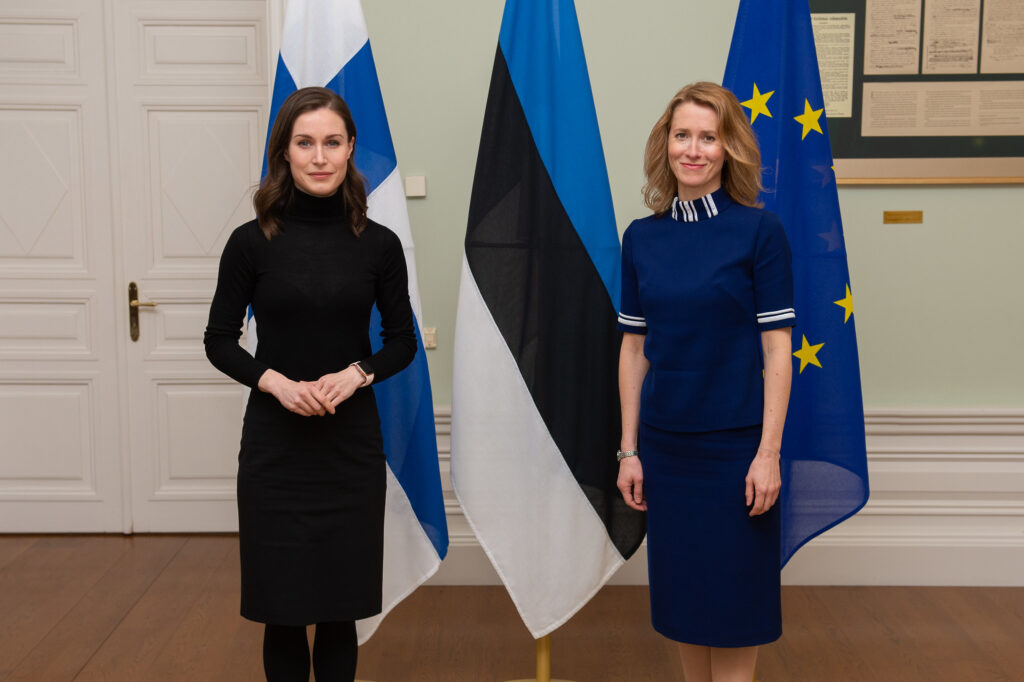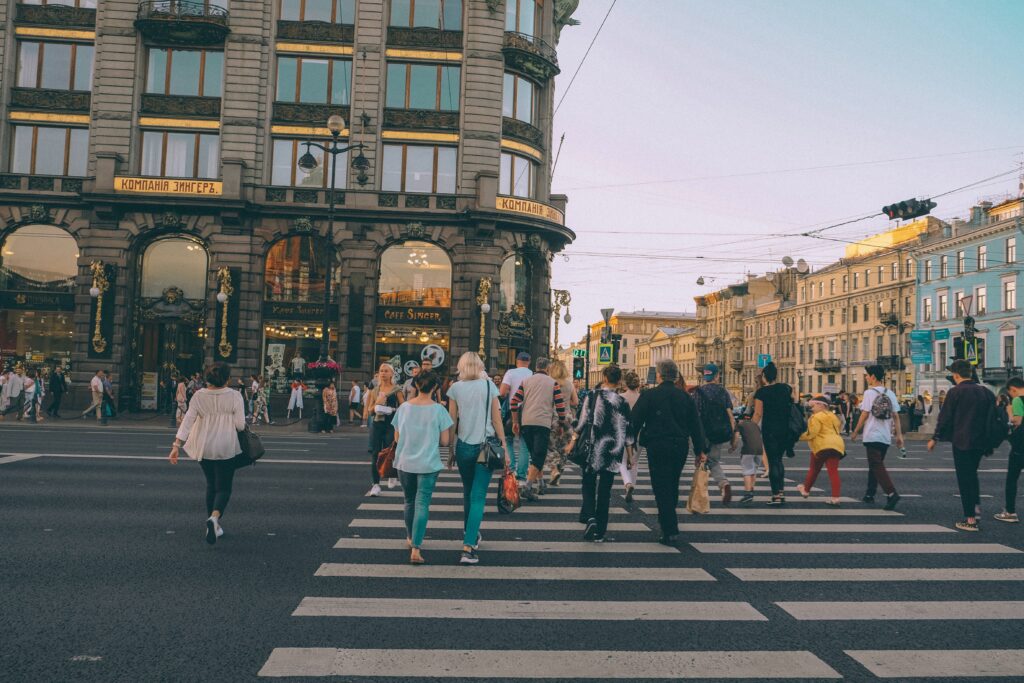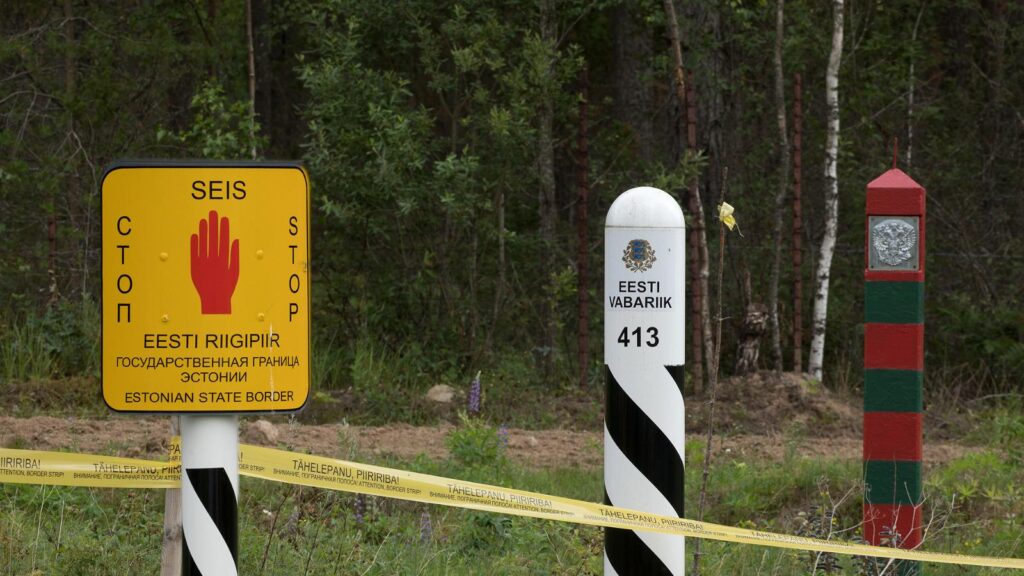As more and more EU countries impose visa restrictions on Russian citizens, will it serve to foment discontent amongst the nation’s privileged populace or be nothing more than a thorn in Putin’s side? Tallinn-based Georgian political scientist, Nino Chanadiri explains.
During the ongoing war in Ukraine, Russia’s neighbouring states in and outside the EU have seen increasing numbers of Russian citizens visiting their countries or travelling through to reach other destinations. In recent weeks, there has been a growing discussion about whether European countries should stop accepting Russian citizens as tourists, and whether it’s a viable response to the crisis. Likewise, Ukrainian president, Volodymyr Zelenskyy, has been asking Western nations to stop accepting Russian travellers, calling it an important sanction that could influence Putin.
However, Ukraine is not alone in supporting travel sanctions against Russian citizens. On 25 February, shortly after Russia launched its aggressive campaign against Ukraine, the Czech Republic became the first EU country to stop issuing visas for Russian citizens, with the only exceptions being humanitarian cases. Since then, officials from the Czech Republic have been voicing the need for other member states to take similar action – and now that the topic has become widely discussed, they plan to continue pushing the sanction model at an EU level.
For instance, in early August Latvia restricted approval of Russian citizens’ visa applications, only allowing them in the country for the funeral of a relative, effectively controlling reasons to visit. Moreover, the Latvian parliament called on Western countries to stop issuing visas to the citizens of Russia and declared the nation a “state sponsor of terrorism”.
Following the example of its neighbour, Estonia declared that it will ban Russian citizens with Estonian-issued Schengen visas from entering the country and likewise urged other European countries to follow the same path. Kaja Kallas, the Estonian prime minister, has encouraged other European countries to stop issuing tourist visas to Russia’s citizens, as border countries – Estonia, Latvia and Finland – are shouldering the burden while Russia-EU air travel is closed. Estonia made the decision due to the dramatically increasing numbers of Russian citizens travelling to the country or passing through it on their way to other countries.
The same discussion is going on in Finland, another country bordering Russia where the number of Russian tourists is also increasing. It has been reported by the Finnish foreign ministry that the country is used by Russians as a transit hub as they make their way to other holiday destinations throughout Europe. Some Russian companies even offer car trips to Finnish airports as direct air travel from Russia to Europe is currently banned by the EU. According to the Finnish prime minister, Sanna Marin, it is not acceptable that Russians can be tourists in Europe and enjoy normal life while their country is waging a brutal war against Ukraine.

Why is this sanction effective?
Kallas has stated that it is important to understand that “only 10 percent of the Russian population travels abroad and it is these people, who are mainly from Moscow or St. Petersburg, whose opinion matters”. Put another way, the Kremlin has avoided inconveniencing residents in Russia’s major metropolises so far and is trying to mitigate the impacts of the war in Ukraine throughout those cities.
For example, Russia has been recruiting soldiers for the Ukrainian front outside Moscow and other major cities, instead taking volunteers from rural areas and its ethnic republics. Should the war cause too much trouble for the city residents, it would be problematic for the Kremlin and could lead to growing dissatisfaction and criticism towards the regime. However, such travel restrictions would doubtlessly affect those privileged populations from the major cities. Thus, it increases the chances that they would begin to express dissatisfaction toward Russia’s war in Ukraine as well as the regime itself.
Needless to say, travel restrictions by Russia’s neighbouring states are already creating discomfort for Moscow, as evidenced by its reactions. Following the tweet from Kaja Kallas regarding a ban on visas for Russian citizens, Dmitry Medvedev tweeted, “You being at large is not your merit, but our shortcoming”, a thinly veiled reference to Russia’s attitude regarding Estonia’s – not to mention the other Baltic states – independence, which Russia views as a “mistake”.

Will other states follow?
The officials from Estonia, Finland and the Czech Republic have said that they will discuss this topic at an EU level during upcoming official events. Of course, it is possible other individual EU states who are exceptionally critical of Russia will take similar action and introduce visa restrictions for Russian citizens. For example, Lithuania is expected to follow the same path as its Baltic neighbours.
However, reaching a European-wide consensus on the issue will be more complicated. Germany has already expressed doubts about the possibility of not issuing Schengen visas for Russian citizens, claiming it might not be an effective step.
On the other hand, developments also depend on Kyiv’s continued pressure on the EU states to impose as many, and as strict, sanctions on Russia as possible. As noted above, for some in Europe it is not only about applying more pressure on Moscow but is in fact a moral issue – not allowing Russia and its citizens to continue ordinary life while committing crimes against humanity in Ukraine. It is yet difficult to say if this attitude will be shared by everyone in Europe.
The opinions in this article are those of the author.

